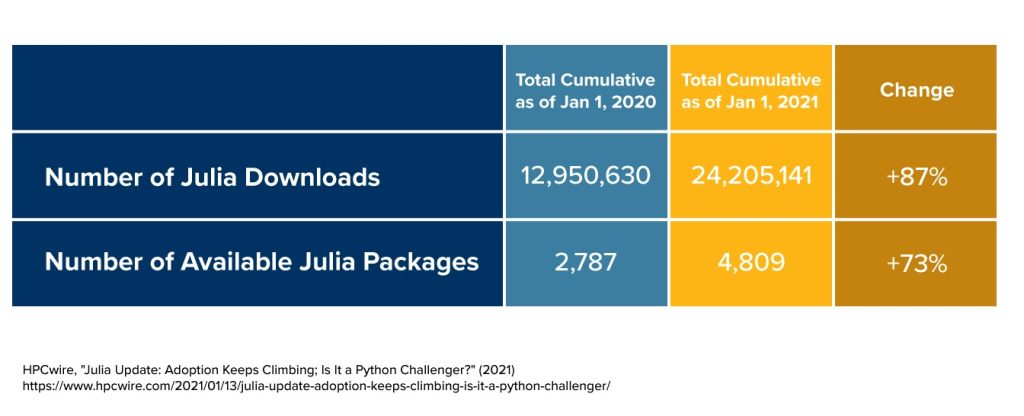In the contemporary realm of technology, artificial intelligence (AI) stands as a pioneering force, revolutionizing various domains, including software development. AI’s computational prowess and problem-solving capabilities have led to the emergence of AI-driven programming, significantly transforming the traditional programming landscape. This article delves into the nuances of AI-driven programming, its impact on software development, the best programming languages for AI, and the future of this fascinating intersection of AI and programming.

The Advent of AI in Programming
AI has been instrumental in the evolution of many software development projects. It has enabled developers to create software that can perceive, learn, reason, and solve problems – much like the human mind. To leverage these capabilities effectively, it is crucial to choose the right programming language.
The decision of choosing the right language depends on several factors, including the problem you are trying to solve, the desired outcome, and the type of data you’re processing. AI is a broad field with wide applications. Different programming languages excel at various AI-related tasks, making the choice of the language critical to the success of your application.
Harnessing AI for Code Creation
AI’s potential extends to writing and generating code. Leveraging AI’s capabilities, developers can generate functioning scripts in a matter of seconds. Tools like OpenAI’s ChatGPT, for instance, can generate code snippets based on provided context and guidance. However, these tools require a basic understanding of the programming framework to be used effectively.
For instance, if you are working with a Spring Boot application, you need to provide ChatGPT with the necessary details to generate a controller, service, and repository for retrieving and uploading data. ChatGPT builds upon your previous interactions, making the addition of new features and implementation of methods more seamless.
AI’s Influence on Software Development
AI’s impact on software development is multifaceted. It has resulted in more secure systems and increased productivity. Here’s a closer look at the areas where AI has been particularly useful:
Requirements Gathering: AI tools can significantly reduce human intervention in gathering and managing requirements, thus saving time and effort.
Design: AI has positively impacted UX design, helping analyze data quicker and provide advanced localization.
Coding: AI-driven coding apps often feature an “autocomplete” function that boosts productivity and improves code accuracy.
Testing: AI accelerates software testing by quickly developing test cases and conducting regression testing.
Security: AI has enhanced data security by investigating data using machine learning, detecting irregularities, and avoiding false notifications.
Real-Life Examples of AI-Powered Programming
GPT-3 by OpenAI and DeepCoder by Microsoft and the University of Cambridge are two notable examples of AI-powered programming. GPT-3 is a machine-learning system and text-generating neural network that can generate code in various programming languages. DeepCoder, on the other hand, is a trained neural network that can solve a variety of programming issues and write code.

The Future of AI-Driven Development
The future of AI-driven development is promising. As AI continues to advance, it will introduce more drastic changes to software development. However, developers need not worry about being replaced by AI. The role of developers will shift as AI evolves, and they will be required to harness and benefit from AI’s vast intelligence to ensure the software systems remain maintainable, scale well, and function without bugs.
The future of AI-driven development will be characterized by a deep AI-human collaboration, where developers will not be working in isolation but will have a smart and patient AI ally by their side, ready to come to their aid at almost every stage of development.
Best Programming Languages for AI
Several programming languages are tailored for artificial intelligence. These include Python, Java, C++, JavaScript, Julia, LISP, and several others. Each of these languages has its strengths and is suited to various AI-related tasks.
Python, a language known for its flexibility, intuitive design, and versatility, is a powerful tool for data analysis, making it key for AI development. Java is particularly beneficial for enterprise-level software applications, neural networks, and artificial intelligence platforms. C++, known for its speed and efficiency, is excellent for machine learning and neural network applications.
JavaScript, the most popular programming language globally, is a promising choice for beginners learning AI. Julia, a recent addition to the programming space, is especially helpful for scientific computing and data analysis. LISP, the second-oldest programming language, is widely used in artificial intelligence development and shines at handling symbolic information and lists.
Key Challenges to AI
AI’s growth, however, is not without obstacles. Bias in AI systems, data limitations, and resource constraints pose significant challenges to AI’s development and usage. AI systems’ quality depends on the data fed into them. Using “bad” or low-quality data can result in biased systems. Machine learning requires copious amounts of data, but readily available training data has limits. Increasing the data we can feed AI systems is either costly or illegal, posing both a legal and technical hindrance to AI’s growth. Furthermore, AI algorithms have much larger hardware requirements than traditional software development, leading to additional costs.
The Road Ahead
In conclusion, AI-driven programming heralds a new era in software development. It’s transforming how developers code, leading to increased productivity, enhanced security, and more efficient systems. As AI continues to evolve and improve, developers can expect numerous breakthroughs and advancements, making their jobs more exciting and challenging. AI is not here to replace developers, but to augment their skills and help them deliver better software solutions. The future of AI-driven programming is indeed promising, and there is much to look forward to for developers and the broader tech community.

